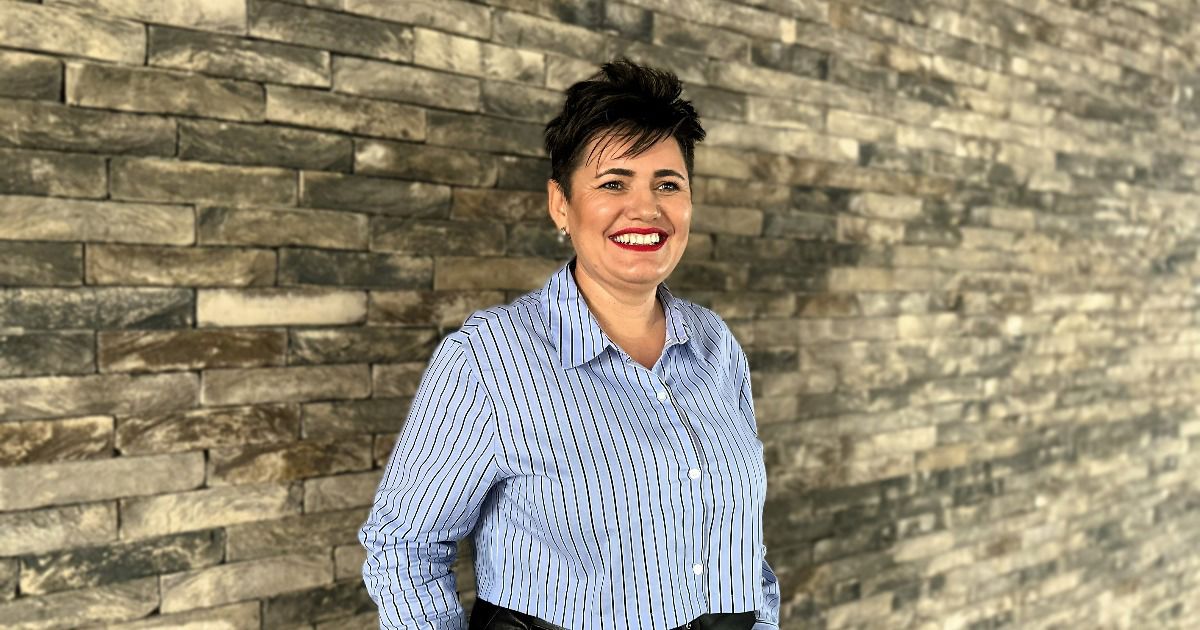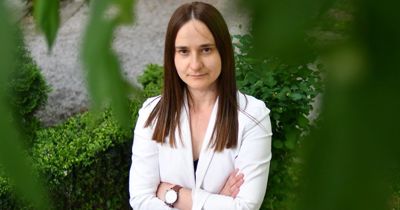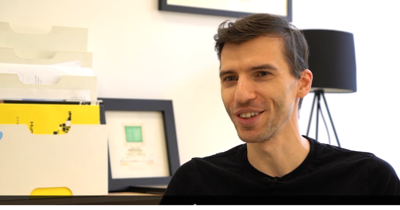
On the occasion of the International Day of Persons with Disabilities, we spoke with Dragica Krstanović Kristić, a prominent activist who, through her dedicated work, is changing the lives of children with developmental challenges and advocating for better understanding and support for parents. Dragica shares her experiences and reflections, emphasizing the importance of awareness regarding the challenges arising from modern technologies. This conversation with the charismatic Dragica illustrates how each of us can initiate change and improve the lives of those in need, simultaneously giving meaning and joy to our own lives. Her dedication and inspirational stories serve as a daily reminder of the individual's strength in creating positive social changes.
1. Over the last ten years, you have been involved in assisting children with developmental challenges. How did you start this particular kind of activism?
"In my early days, I collaborated with several kindergartens in Sarajevo as an external associate, focusing on children with motor and linguistic delays. These experiences were crucial for the successful transition of children into elementary education. I primarily worked with children aged 3 to 7 with motor and linguistic delays, a prerequisite for starting their primary education and successfully mastering the school curriculum. Currently, I work at the Center for Peace Education – CMO in Sarajevo, where the ecological project 'Movement for Ecological Awareness' is implemented. This project promotes the awareness that environmental protection is not only a crucial area in building peace but also an area where all religions urgently need to engage.
Overall, it is essential to emphasize that through my work and experiences, I have concluded that new generations are growing up in the digital age, which significantly contributes to delays and even stagnation in the development of children's motor skills and speech in preschool age. We are not yet fully aware of how early and uncontrolled exposure of children to mobile phone and tablet screens can harm their overall development."
2. You've highlighted the risks of modern technologies on children's development. How do you address these challenges through your projects at CMO?
"At CMO, we recognize the importance of incorporating digital ethics, literacy, and security into all our projects. Modern technologies, especially mobile phone and tablet screens, pose a serious threat to children's development. Therefore, all our activities include a component of digital awareness to prevent dependencies and misuse. I consistently stress: As crucial as it is to assist children and youth with challenges, increasingly caused by inadequate use of modern technologies, it is equally important to raise awareness among all parents about the dangers of the digital age – for their children and family life in general."
3. Is there a specific experience that you consider a key step in your current activism?
"Shortly after finishing high school, I was entrusted with the care of a nun suffering from multiple sclerosis. I performed physiotherapy exercises with her every day. When she lost the will to continue, I persistently tried to encourage her through my presence, words of encouragement, and often jokes to continue the fight. Every movement of her fingers was a joy for me, akin to moving my own fingers, and it brought an indescribable joy I had never experienced before. I had a similar experience as a student during an internship at Reumal in Fojnica. I worked on physiotherapy exercises with a twenty-year-old young man who had a traffic accident and couldn't walk. He felt great fear during the exercises, blocking him from standing up again and taking his first step. To overcome his fear, I tried to establish a relationship of trust with him. One day, engrossed in our relaxed conversation during exercises, he made his first step without even realizing it. I jumped with joy as if he had walked across the entire exercise room. I will never forget the smile I saw on his face."
4. What are the greatest challenges you face in working with children and their parents?
"One of the significant obstacles is the unwillingness of parents to admit and accept that their child needs help. Of course, the sooner this happens, the faster difficulties and developmental delays in motor skills and speech are resolved. Unfortunately, sometimes parents seek help too late, resulting in only partial progress. Additionally, it is crucial that parents agree to teamwork and diligently perform agreed exercises with their child every day, as progress is impossible without it. Moreover, parents changing their lifestyle, especially ensuring that the mobile phone and tablet screen are not a substitute for the time they should spend with their child, is vital. This is the main cause of the increasing number of developmental challenges. Instead of mutual blame, it is important for parents to invest all their energy together in helping their child and be prepared for the fact that genuine progress requires persistence, patience, time, daily effort, and, above all, the belief that progress is possible."
5. Can you share a particularly memorable experience working with a child?
" One of the most remarkable experiences I encountered was while working with a little girl whose parents brought her to me a few days before her third birthday. The girl neither spoke nor reacted to her surroundings, and I soon discovered that her gross and fine motor skills were underdeveloped. She couldn't crawl, hop, run, climb stairs, throw balls, stack blocks—lagging in development by almost two years. Her parents were bewildered, mostly fearing that their daughter didn't speak, and they doubted whether progress was possible at all. After observing the girl, my initial question to her parents was whether she used a mobile phone and how much time she spent in front of a screen daily. Their response astonished me, as the girl had spent entire days in front of a mobile phone or tablet from the eighth month of her life until the age of three. I tried to convince them that everything would be fine and that the girl would eventually start speaking, but the focus should first be on improving her motor skills, which would indirectly lead to speech development. It was challenging for the parents to believe, but they accepted collaboration. Drawing on my prior experience, I initiated gross motor skill exercises with her. Every day, we crawled with me mechanically moving her legs, walked up stairs, repeatedly lifting and lowering her legs with my hands. I constantly communicated with her to gradually develop nonverbal contact and a trusting relationship.
After painstaking and patient daily work throughout the year, a miracle happened. One morning, as I entered the workspace and casually asked the girl what we would be doing today, I heard her voice behind me say the word 'ball.' I turned around, and she was looking at me. I couldn't believe it had happened. I asked her to repeat it, but she just looked at me in silence. Still skeptical about whether she had uttered the word 'ball' or if it was a product of my strong desire, I didn't tell anyone about it. A few days later, my phone rang. With an excited voice, the girl's mother told me that a few minutes ago, her daughter called her 'mom' for the first time. Only then did I fully believe that I had heard her say 'ball' a few days earlier, and I shared the story with her mother. We were overjoyed, and that gave us strength for further work. From that moment on, the girl's parents increasingly embraced teamwork they initially avoided, not realizing its importance. I still work with that girl, preparing her for the start of elementary school, and she no longer experiences delays in any aspect of her development."
6. How do you use your work to influence the spread of positive stories and examples?
"I believe it is crucial to disseminate positive stories and examples because our media space is inundated with negative narratives and instances that lead people to believe that nothing can truly be changed. This is precisely what we strive to do in all CMO projects!
For instance, in nearly all primary and secondary schools involved in our projects, we hosted two Bosnian environmental heroines, Sara Tuševljak and Sunčica Kovačević. They shared their experiences in the fight to protect Bosnian rivers with students, demonstrating through their example that change is possible and that its champions can be young. Of course, it is important to acknowledge that the struggle for human rights protection and positive change in Bosnian society, just like working with children and youth facing difficulties, requires patience, perseverance, daily efforts, continuous learning, listening to others, time, and, above all, love."
7. What is your message for young activists, as well as all those who want to make a positive change in Bosnian society?
"Looking from the outside or reading about my experiences, most people might think about how much I have helped the children I worked with. However, as time goes by, I increasingly discover that these children have actually helped me much more, as being with them revealed my greatest gifts, making my life more meaningful and joyful. Therefore, my message would be that it is impossible to discover who we are, achieve a meaningful, fulfilling, and joyful life unless we begin to give ourselves to something valuable boldly and selflessly every day. And what could that be if not a commitment to change in any, including Bosnian, society."







